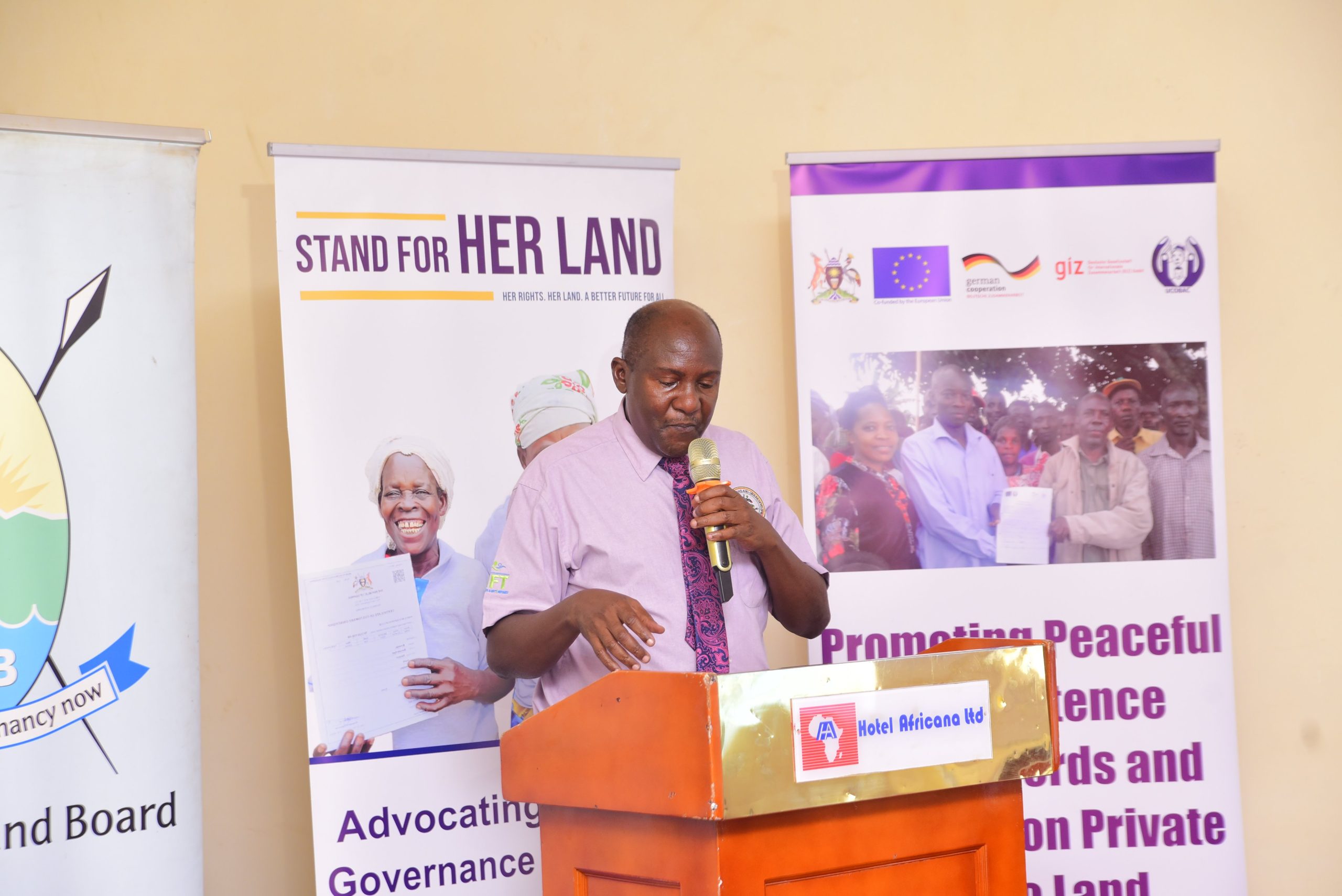Summary:
- The Ministry of Land in Uganda has issued a warning urging women to avoid merely acting as witnesses in family land purchase agreements and instead advocate for their inclusion as co-buyers.
The Ministry of Land has issued a cautionary statement urging women to refrain from merely acting as witnesses in family land purchase agreements, instead advocating for their inclusion as co-buyers. Abdul-Nasser Olekwa, the Principal Land Officer, alongside Dennis Obbo, the Principal Communications Officer, emphasized that women often face eviction from land due to their status as mere witnesses on these agreements.
Obbo highlighted the predicament faced by many women who diligently contribute funds towards purchasing land for their families but are relegated to the role of witnesses during the signing process. He identified this practice as a loophole exploited by spouses to sell the land unilaterally during disputes, bypassing the consent of the women involved.
“Why should you settle for being a mere witness when you’ve contributed substantially to the purchase? Why allow your husband to relegate you to this role when you are an equal partner in the marriage? It’s time to challenge the notion that men are the sole heads of households. Exercise your right to question why you’re being marginalized in these agreements,” Obbo asserted.
Let Us Build Your Online Success!
We are the experts in creating visually stunning and functional websites. With reliable hosting and exceptional customer support, we bring your vision to life. Join hundreds of happy clients who trust us!
Get Started Now📞 Call/WhatsApp: +256 207 800 192
These sentiments were expressed during a dialogue aimed at fostering harmonious relations between landlords and tenants on mailo land, organized by the Uganda Community Based Association for Women and Children Welfare (UCOBAC). The event served as a platform for the Stand For Her Land Campaign in Uganda, a global initiative led by civil society organizations (CSOs) to advocate for and safeguard women’s land rights by bridging the gap between legal frameworks and practical implementation.
Olekwa underscored the deeply entrenched cultural biases contributing to injustices against women in land usage and ownership. He noted prevailing beliefs that endorse female submissiveness to male authority and deny them the right to inherit property from spouses or parents.
Caroline Kayanja, Senior Programs Officer at UCOBAC, emphasized the disparity between women’s substantial role as land users and their limited ownership rights, primarily dominated by men. Kayanja warned that relegating women to mere users rather than owners jeopardizes their security and undermines their productive potential on the land.
“While land issues affect both genders, women bear the brunt of these challenges. Despite legislative revisions, tangible efforts are needed to ensure that land laws effectively empower women. Women should not merely be recipients but active beneficiaries of land rights legislation,” Kayanja emphasized.
Participants echoed the need for making land laws more accessible by translating them into languages understandable to ordinary citizens. Kayanja highlighted the vulnerability of women due to their limited awareness of land ownership laws, stressing the importance of enhancing their legal literacy to safeguard their rights effectively.

